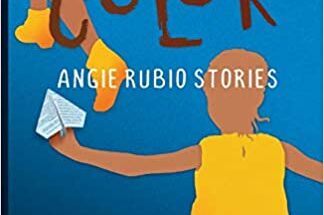(Note: This rant was originally inspired [or should I say, rekindled] by this Grub Street blog post by Suzahn Ebrahimian.)
It was frustrating when I first got into more “serious” fiction writing, for I was a good little student. I read all the books, I listened to all the rules. I did the absolute best I could and honest-to-God thought that would be enough.
But then it all got chucked back into my face. Because apparently the rules were wrong, the books didn’t apply to me, and I was doomed from the start because I was one of those dagnabbed Others.
Huhn.
Game over, right?
Good thing I run on Froot Loops and spite.
You see, I learned the hard way that some of the rules I was taught to be universal in writing are nothing more than rules for the mainstream. What’s worse is that there don’t quite seem to be alternative rules to these rules, for if you’ve ever hoped to be published by a house, your audience will, in fact, be predominantly mainstream.
And while our fates sadly seem to forever rest in the claws of mayonnaise and the missionary position, I still want to bitch about what I perceive to be the top 3 headaches.
1. Show, Don’t Tell
In the immortal “show, don’t tell” rule, do we as marginalized writers show instead of tell, and therefore risk ourselves erased, misread, and misunderstood by the masses? Or do we make ourselves tell instead of show, and come off like we’re weak writers? (And thereby contributing to the lack of marginalized writers out there in the world because they’re deemed not in equal quality to the mainstream kind.) I dunno, man. But I do know that feeling forced to tell is a painful process, especially when the telling is required simply because the audience doesn’t want to meet you halfway.
2. The Reader’s Misunderstanding is the Author’s Fault
The related rule of “if the reader didn’t understand what I was going for, then I failed as a writer” is also a tricky one to follow. I used to believe this rule 100%. But I’ve since come to realize that it’s not always true for marginalized writers when their misunderstanding audience is mainstream. No. When a mainstream reader doesn’t understand, sometimes it’s not you as the writer who has failed. Sometimes it’s the reader who’s failed to understand you.
The balance between sticking to your authentic writing style and presenting your complex identity in a way that even the barest newbie can understand is so thin a line, I often can’t find it. We’re once again asked to do the impossible. Once again to be superheroes for a mundane world. Just so we can hit base level in the eyes of people who, on the whole, were historically never very nice to us to begin with.
3. “Realistic” Trauma
Now, any story needs to have something going on to be considered a story. Something that affects the protagonist. Something bad. And you’d think that’d be the end of it. Traumatize the protagonist—boom—instant story. But when it comes to a story dealing with a marginalized protagonist, we run into some trouble when we’re read by a mainstream audience.
Inciting incidents, wounding events, and trauma for marginalized characters often seems to be read by mainstreamers as unrealistic if it’s not a) stereotyped, b) problematic, and/or c) directly related to the Otherness of the character’s identity.
Because why bother writing about a marginalized character at all if they don’t fit the lens of a reader outside of that skin, amirite?
Mainstream readers sometimes approach marginalized writing with a critical eye instead of an open mind, their first and biggest failing being their attempt to understand someone else’s world solely through their own. And when they don’t match up, anything dangling gets lopped off as implausible.
In short, sometimes they don’t want us how we really are. Sometimes they want us how they already see us.
And that realization hurts.
So What Do We Do?
I have yet to find a satisfying answer for this. The best I’ve come up with is meeting somewhere in the middle, and that’s probably different for each writer. Figure out where your line is and then promise yourself to never, ever cross over it. Even when some mainstreamers still want you to come all the way over to their armchairs.
It’s a fun place to be, that nonexistent line between spoon-feeding while being eye-opening, between being real while not making the mainstream feel uncomfortable with the truth, between whoring yourself out voyeuristically while still keeping your dignity, between being an individual while still somehow representing the entirety of your community.
Just remember that it’s not your fault, this conundrum. Inviting in is a two-way street. And if you’ve put forth the effort to invite them in, but they’re still not holding up their end of the bargain, then that’s simply their loss.
And to All You Well-Meaning Mainstreamers Out There
So I know I’ve once again come off bitter. Because that’s just who I am. But rest assured that I love inviting outside people into my writing. I really do. And so do plenty of other marginalized writers.
But you in turn need to meet us halfway in order for this to work. Us inviting you in is not us catering to you. Every novel with an X identified protagonist isn’t meant to be a 101 teaching tool about X. And if you believe otherwise, you have some work ahead of you. Please do that work before you pick up any of our books.
And believe it or not, we really, really want you to pick up our books.



1 comment